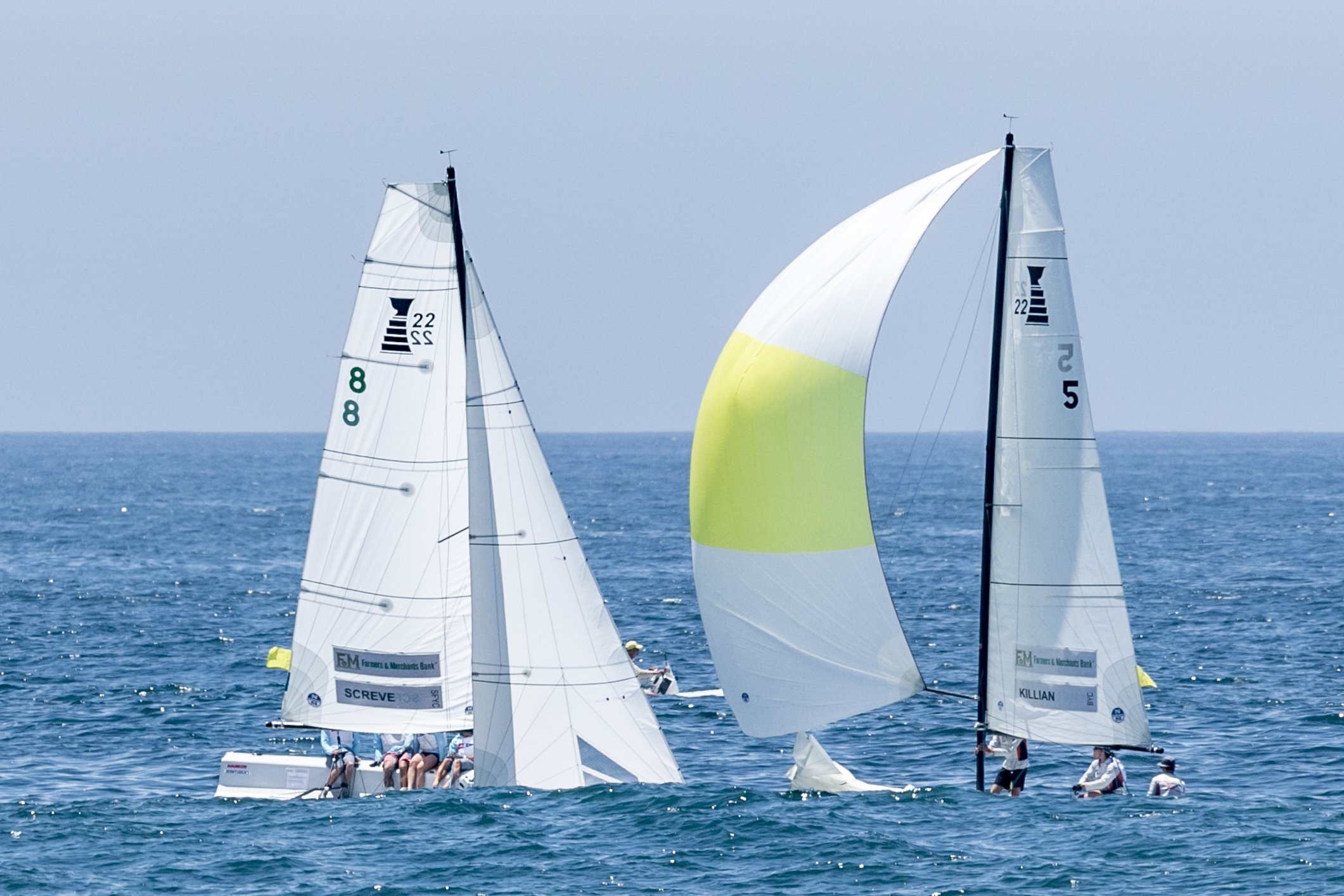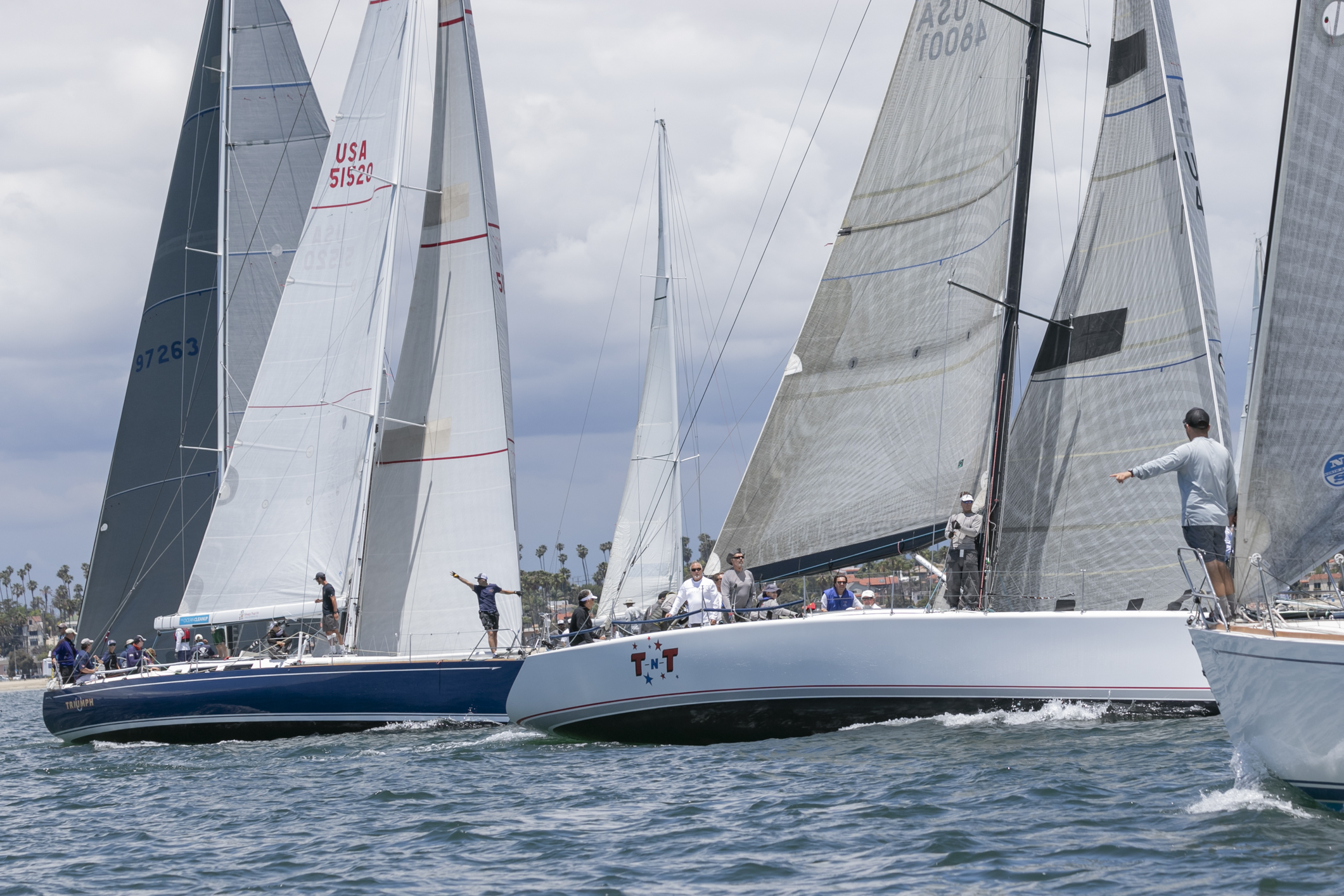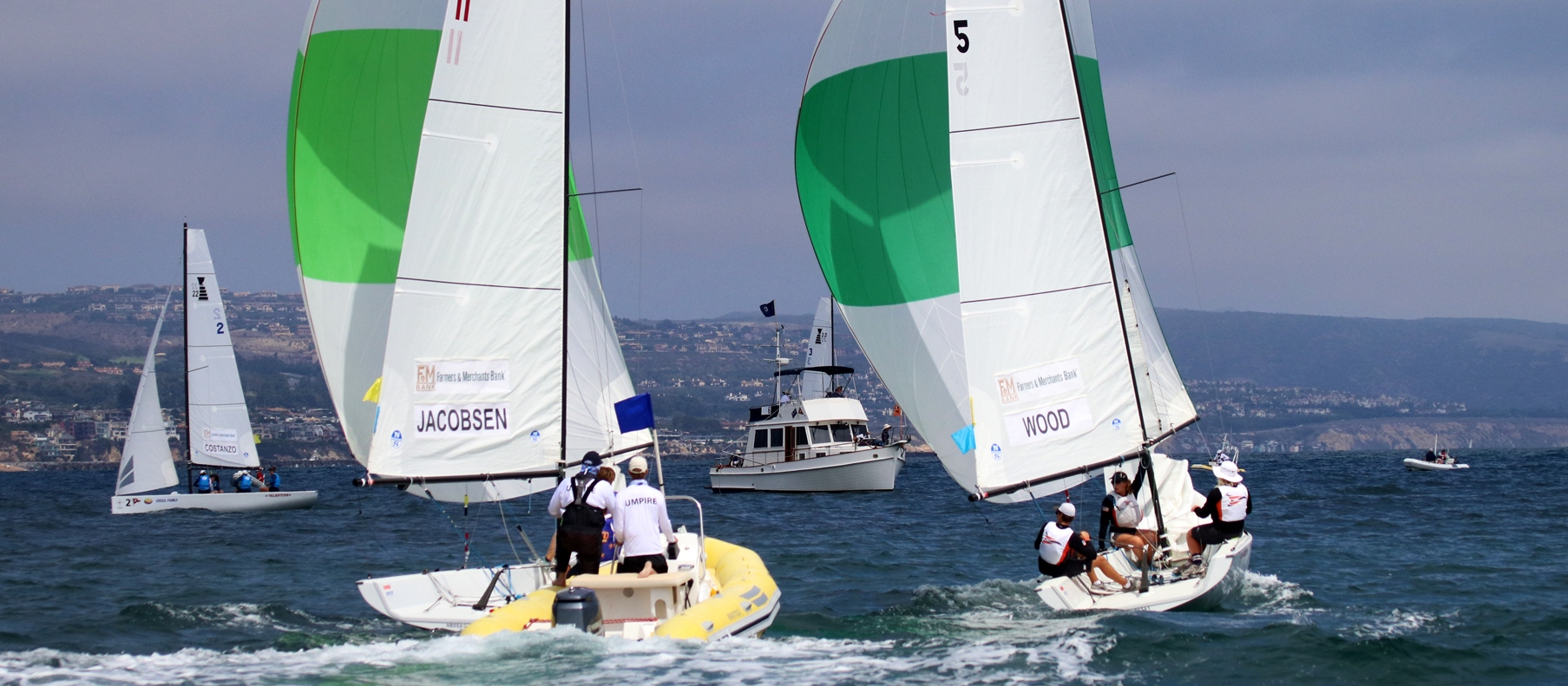Ahoy!
After last weekend’s heat wave from a high pressure system, the weather will cool down with the coastal air temperatures this weekend in the low to high 70s and a slight chance of thunderstorms that I expect might hit the local mountain areas. On the water, the air temperatures will be a little lower, cooled by the chilly ocean temperature.
You can expect morning fog and mostly cloudy skies this weekend for your outdoor activities and boating. Sailors can expect afternoon winds from the west at about 10 knots, but variable conditions in the mornings and evenings. If you will be sailing in the harbor then you can expect a mild tide difference between the high morning tides and low afternoon tides, but stronger tide change and current in the wee hours of the morning – as always please check your tide book.
The swells are calm, with mid-San Pedro Channel about 2 feet, and you can expect along the coast about 1 foot swells from the west and no south. Wind waves will be 1 foot, maybe reaching 2 feet later in the afternoons when the wind speed moves into double digits.
The ocean temperatures will remain in the mid-60s. The Dana Point buoy was reading 69 degrees this week. It appears that our summer weather has arrived in the fall, and hopefully the fishing will finally get better with the big fish arriving from the south better late than never.
There are two thunderstorm systems out in the Pacific that have a low probability of becoming anything worse, but they do have the potential to push more tropical weather into our area next week, so I will keep an eye on these two.
As always, with an eye to the north, boaters off Point Conception will experience west-northwest swells of approximately 6 feet with west northwest winds around 10 to 12 knots, thus the swells’ intervals should remain in the double digits. Intervals is the time in seconds between two consecutive swells, and the longer the interval the less you will feel the force on a boat. Close or single-digit intervals create rough rolling conditions, and I have had boats literally fall off the tops of swells when the stronger winds steepen their faces, causing what is called pounding or a loud thud when the boat’s hull falls into the trough.
Sometimes boating is not for the faint-hearted, so always check the sea and weather conditions before you leave the dock.
Safe Voyages,
Mike Whitehead, Capt.




